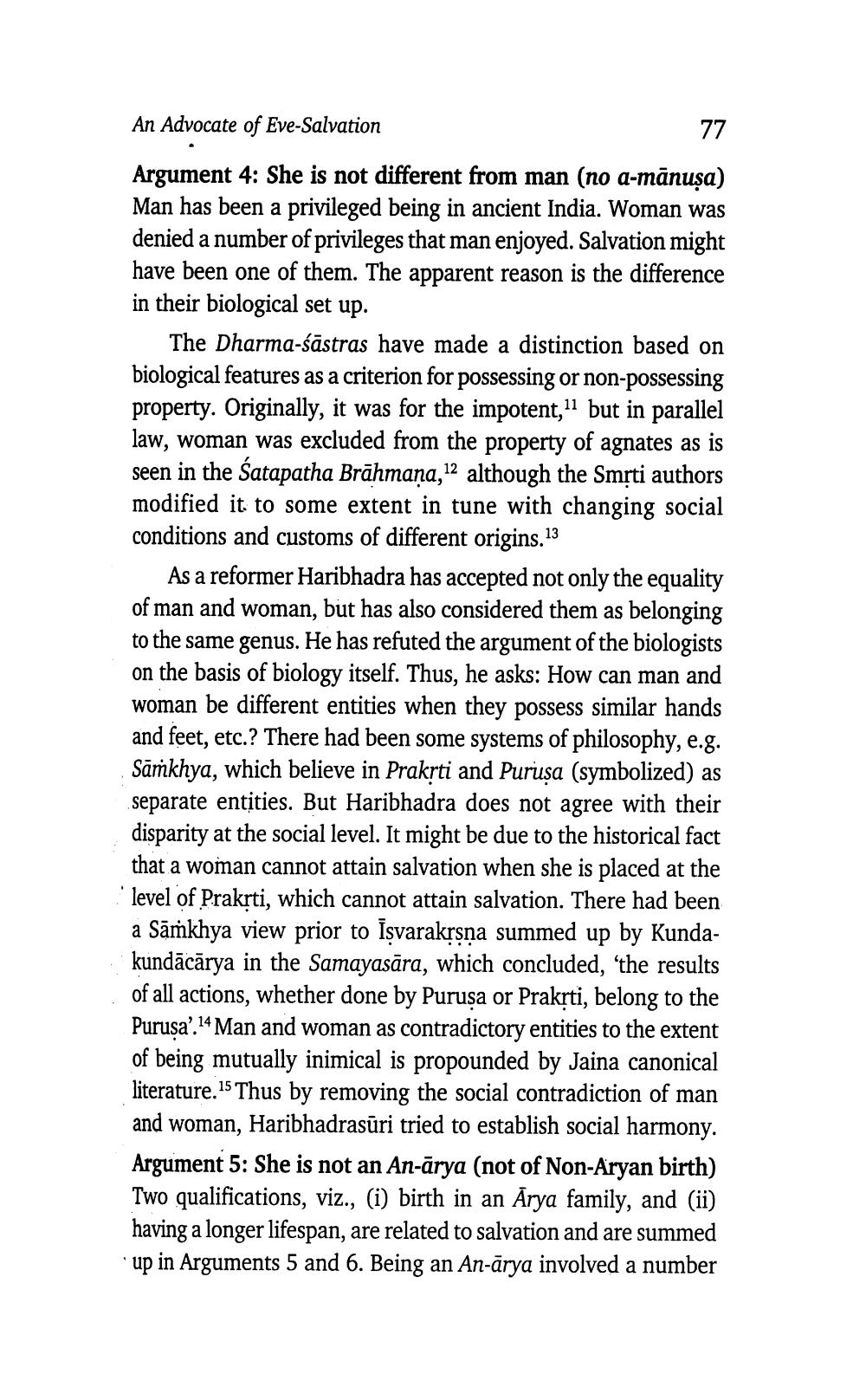________________
An Advocate of Eve-Salvation
77 Argument 4: She is not different from man (no a-mānuşa) Man has been a privileged being in ancient India. Woman was denied a number of privileges that man enjoyed. Salvation might have been one of them. The apparent reason is the difference in their biological set up.
The Dharma-śāstras have made a distinction based on biological features as a criterion for possessing or non-possessing property. Originally, it was for the impotent, 11 but in parallel law, woman was excluded from the property of agnates as is seen in the Satapatha Brāhmaṇa, 12 although the Smrti authors modified it to some extent in tune with changing social conditions and customs of different origins. 13
As a reformer Haribhadra has accepted not only the equality of man and woman, but has also considered them as belonging to the same genus. He has refuted the argument of the biologists on the basis of biology itself. Thus, he asks: How can man and woman be different entities when they possess similar hands and feet, etc.? There had been some systems of philosophy, e.g. Sāṁkhya, which believe in Prakrti and Puruşa (symbolized) as separate entities. But Haribhadra does not agree with their disparity at the social level. It might be due to the historical fact
that a woman cannot attain salvation when she is placed at the ' level of Prakrti, which cannot attain salvation. There had been
a Sāmkhya view prior to īsvarakrsna summed up by Kundakundācārya in the Samayasāra, which concluded, 'the results of all actions, whether done by Purusa or Prakrti, belong to the Purusa’.14 Man and woman as contradictory entities to the extent of being mutually inimical is propounded by Jaina canonical literature. 15 Thus by removing the social contradiction of man and woman, Haribhadrasūri tried to establish social harmony. Argument 5: She is not an An-ārya (not of Non-Aryan birth) Two qualifications, viz., (i) birth in an Arya family, and (ii) having a longer lifespan, are related to salvation and are summed ' up in Arguments 5 and 6. Being an An-ārya involved a number




